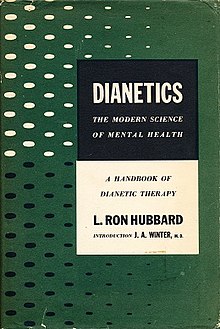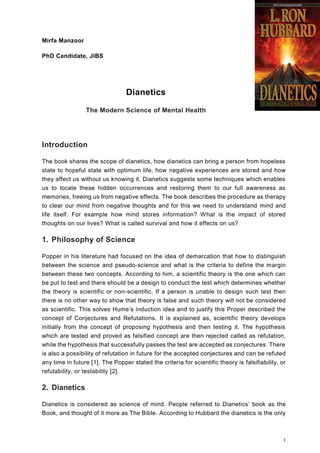The Basic Principles Of Dianetics
The Basic Principles Of Dianetics
Blog Article
Things about Dianetics
Table of ContentsThe Basic Principles Of Dianetics The smart Trick of Dianetics That Nobody is Talking AboutDianetics Can Be Fun For AnyoneIndicators on Dianetics You Need To Know
I could not ever before not intend to receive anything that enters your mind for you- if it was otherwise, I wouldn't be resting right here with you, doing this. I not just could never have a trouble, or not desire to hear something that enters your mind for you, yet I'm completely anxious to understand every concept, every thought, every picture or feeling that arises or shows up for you- do not ever before believe or else, and if for some reason you do, please just allow me recognize! In some cases, you might have an idea, and image, idea or event appear that does not seem to respond to the question, or connect to it, but nevertheless, always do inform me about it, and as we proceed, the significance will certainly arise for you.This is integral in the basis of processing, and the topic of this conversation: the standard functions of the counselor and the customer: The basic role of the counselor is, in contrast to "typical training", not to regulate, which implies to apply and/or inhibit, yet to rather function from the basis of EMPOWERING THE CUSTOMER.

Facts About Dianetics Revealed
John Mcmasters shared this basic fact splendidly well in among his lectures on Power handling, wherein he discusses exactly how he was asked what this "special flair" was that he had for giving such great sessions; he had to think of that for a minute, and detected that it was what he wasn't doing, in addition to what he was doing: he had not been reviewing, judging, computing, or as a matter of fact, creating any kind of ideas, not to mention verbal expressions, after offering the command and while awaiting the computer to complete their response to their contentment; he was, simply and only, being existing with the PC, and entirely interested.
The duty of the therapist, demonstrated; that was his "special flair". I have actually had my very own experience which instructed me this well, really early in the video game. In 1982, having actually recently finished my training and teaching fellowship on New Period Dianetics, I was running this on a COMPUTER, and there was a factor in the session where (being a bit wet behind the ears not yet having many hours under my belt as a specialist auditor) the computer seemed to be "taking also lengthy" to express anything click here for more info verbally after you could check here I offered him a command.
This trick became the most valuable payment that John ever made to the topic of treatment or auditing (Dianetics). In my modest opinion, it is the biggest payment that any individual has ever made to these subjectsthe application is entirely non-judgemental, non-evaluative, and without any type of tip, recommendations or opinion.no preconceived agenda for individuals, or 'degrees' that they should do
In Idenics, the only resource of details concerning a customer is the individual customer. In Scientology we prided ourselves on not assessing for people. Yet all that really implied was that the auditor did not vocally evaluate for the computer in session. The registrars and principles policemans examined for the PC.
The Facts About Dianetics Uncovered

Anybody who had ever seen John audit might not help yet notice a distinct top quality in his auditing."The client's standard duty is to be there with the function of relocating the direction of their spiritual goals, and to freely and fully reveal and link experience whatever materializes for them in addressing the inquiries and executing the instructions in the handling.
This is something to process as required. Likewise, individuals often have prior experience and/or indoctrination in auditing/processing which, in some ways, and to some degrees, really deceives them right into mindsets, concepts and actions patterns that prevent the complete realization of these duties, and so they will tend to prevent the expressing of what comes to mind, as in the examples given over - Dianetics. * The initial, and maybe foremost examples of mis-indoctrination leading to much less than completely smooth and reliable sessions, can be located in certain elements of the training routines, or "TR's":"TR's" are typically an individual's initial, or at least early, experience in Scientology, and while I will certainly take place to clarify what I see as the imperfections in concept and technique, nevertheless, often tend to be substantially healing, done as they are offered (Hubbard insists that "TR's are not refining, they are educating", however factually, they are both handling AND training)
Alan Walter made comparable observations, and enhanced these with his "Presence Processes". There is no "failing", and no denial of the fact of this being processing. The emphasis, as it should be, gets on experiencing the other individual's visibility. All the manifestations which obtain a "flunk" in doing "TR-0" are just the being's efforts to withstand the other person's visibility, and instead of being harassed and badgered with "Flunk", which enforces "failure!" on the being, one just requires to be urged to "stick their feet in the water a little much deeper", to increasingly rehabilitate their capacity and readiness to completely share and experience "being right here", or "visibility", with others.
4 Simple Techniques For Dianetics

Report this page